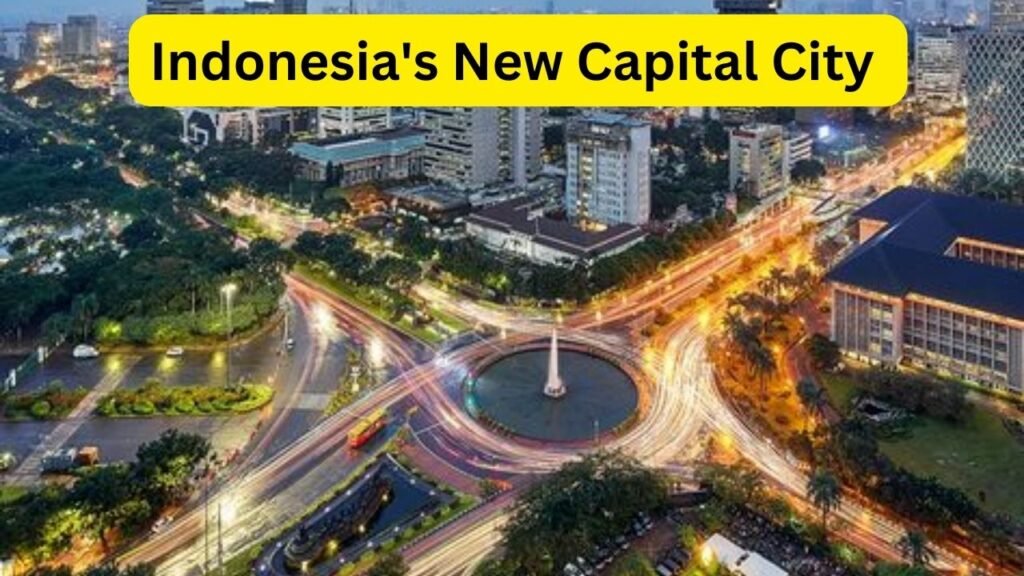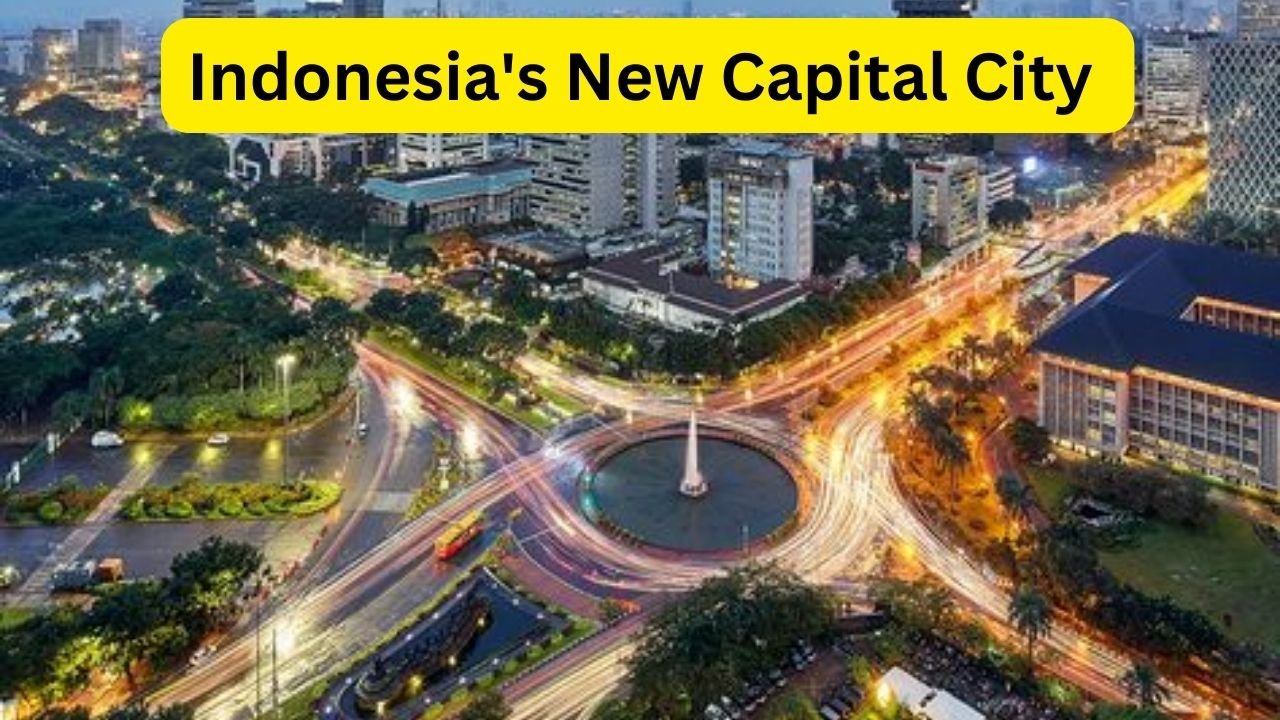Jakarta’s Sinking Crisis: A Political Solution
Indonesia’s New Capital City: Jakarta, the capital city of Indonesia, has been facing a severe sinking crisis due to over-extraction of groundwater. This has led to the consideration of a new capital city, named “New Santara.” But the question arises: Is this a political solution or just a false illusion?
The idea of establishing a new capital has been proposed as a way to ease the burden on Jakarta and tackle its sinking crisis. The Indonesian government has outlined a vision and plan for New Santara, with the aim of inaugurating it by 2024.
However, the proposed new capital project has been met with various critiques, both political and financial. Political critics argue that the government’s priorities lie elsewhere, while financial critics raise concerns about the costs and funding for the project. Additionally, environmental critiques highlight the potential negative impact of the new capital on the environment.
Despite these challenges, it’s important to consider the long-term impact of New Santara on not only Jakarta and Indonesia but also the world. Relocating the capital city could potentially alleviate the strain on Jakarta, but it could also lead to new environmental and social challenges.
New Capital of Indonesia: Introduction to New Santara
The Indonesian government has announced its ambitious plan to move the country’s capital from Jakarta to a new location in East Kalimantan, called New Santara. The vision for New Santara is to create a sustainable, smart, and green city, aiming to improve the quality of life for its inhabitants and reduce the burden on Jakarta. The new capital is expected to be inaugurated by 2024, and the project comes with a set of challenges and critiques.
Vision for New Santara
The new capital aims to become a model city in terms of sustainability, innovation, and liveability. The government’s master plan highlights the importance of preserving the environment, promoting economic growth, and improving the well-being of its residents. New Santara intends to foster a balanced development between economic, social, and environmental aspects while providing a better solution for the overpopulation and congestion issues faced by Jakarta.
The new capital project marks a significant turning point in Indonesia’s national development. Despite the challenges and critiques, the Indonesian government’s commitment to creating a sustainable and smart city remains steadfast. The New Santara has the potential to become a symbol of resilience, sustainable growth, and international cooperation as it strives to overcome the challenges that come with its ambitious vision.
Timeline and Challenges of Inaugurating New Santara by 2024
The Indonesian government has announced its plan to inaugurate the new capital city, New Santara, by 2024. The timeline for this massive project is ambitious, and several challenges need to be addressed to make it a reality. Here are some of the key challenges:
- Land acquisition: The government needs to acquire around 180,000 hectares of land for the new capital, which is a significant challenge in itself.
- Infrastructure development: Building the necessary infrastructure such as roads, bridges, airports, and seaports will be an enormous task, and it needs to be completed on time to meet the 2024 deadline.
- Funding: The estimated cost of the new capital is around $33 billion, and the government is looking to finance it through a combination of public and private funding. However, securing enough funding remains a significant challenge.
- Environmental concerns: The new capital is being built in a forested area that is home to several endangered species. The government needs to ensure that the construction does not harm the environment or displace local communities.
- Political will: The success of the new capital project will depend on the political will of the government and the support of the people. The government needs to ensure that the project is transparent, inclusive, and benefits everyone.
The challenges are significant, but the Indonesian government is committed to overcoming them and inaugurating the new capital city by 2024. The successful completion of this project will have a significant impact on Jakarta, Indonesia, and the world.

Controversial New Indonesian Capital: A Looming Crisis?
Indonesia has announced its ambitious plan to shift the capital from Jakarta to a new location, named “New Santara,” by 2024. However, the project has faced various critiques from different quarters.
Political Critiques:
- The project has been criticized for its lack of transparency and public participation in the decision-making process.
- Critics argue that the move is a political gimmick aimed at distracting the public from the government’s failure to address Jakarta’s pressing issues, such as flooding, traffic congestion, and pollution.
Financial Critiques:
- The estimated cost of the project is $33 billion, and critics question the financial feasibility of the project, especially in the midst of the COVID-19 pandemic.
- There are concerns about the sources of funding, as the government has not provided clear information on how it plans to finance the project.
Environmental Critiques:
- The new capital’s location is in a seismically active area, making it vulnerable to earthquakes and tsunamis.
- The project could also result in large-scale deforestation and habitat destruction, threatening the region’s biodiversity.
The long-term impact of the new capital on Jakarta, Indonesia, and the world remains to be seen. However, the controversies surrounding the project raise questions about its viability and potential risks. It is crucial that the Indonesian government address these concerns and ensure transparency, accountability, and sustainability in the implementation of the new capital project.
Long-term Impact of New Capital on Jakarta, Indonesia, and the World
The Indonesian government has announced its plan to move the country’s capital from Jakarta to a new location in East Kalimantan, named “New Santara.”. The new capital is expected to alleviate Jakarta’s sinking crisis, overpopulation, and congestion and provide more sustainable and integrated urban development for the country.
The relocation of the capital is projected to have significant long-term impacts on Jakarta, Indonesia, and the world. Some of the anticipated benefits include:
- Reducing pressure on Jakarta’s infrastructure and reducing congestion: Jakarta is one of the most congested cities globally, with severe traffic jams and air pollution. By moving the capital, the government aims to reduce the burden on Jakarta’s infrastructure and alleviate traffic congestion in the city.
- Promoting sustainable urban development: The new capital will be built with the latest technology and green infrastructure, with a focus on sustainability, walkability, and smart city solutions.
- Stimulating economic growth in East Kalimantan: The new capital is expected to create significant economic opportunities in East Kalimantan, generate new jobs, and attract investment to the region.
- Enhancing national integration: The new capital will be situated in a region that is more geographically representative of the diverse Indonesian archipelago, promoting a sense of national unity and integration.
However, the long-term impact of the new capital on the world is still unclear. While it has the potential to serve as a model for sustainable urban development, there are also concerns about deforestation, land use change, and carbon emissions from the construction of the new capital. Additionally, the financial and environmental sustainability of the project needs to be further evaluated, as the cost of building the new capital is estimated to be over $30 billion.
Overall, the relocation of the Indonesian capital to New Santara has significant long-term implications for Jakarta, Indonesia, and the world. It presents an opportunity to create sustainable, integrated urban development but also raises concerns about land use, carbon emissions, and financial sustainability. Therefore, further research and evaluation are necessary to ensure a successful transition to the new capital.
Summary:
- The new capital, New Santara, is expected to alleviate Jakarta’s sinking crisis and overpopulation.
- The relocation of the capital will promote sustainable urban development, reduce pressure on Jakarta’s infrastructure, stimulate economic growth in East Kalimantan, and enhance national integration.
- The long-term impact of the new capital on the world is still unclear, with concerns about deforestation, land use change, and carbon emissions.
- Further research and evaluation are necessary to ensure a successful transition to the new capital.

